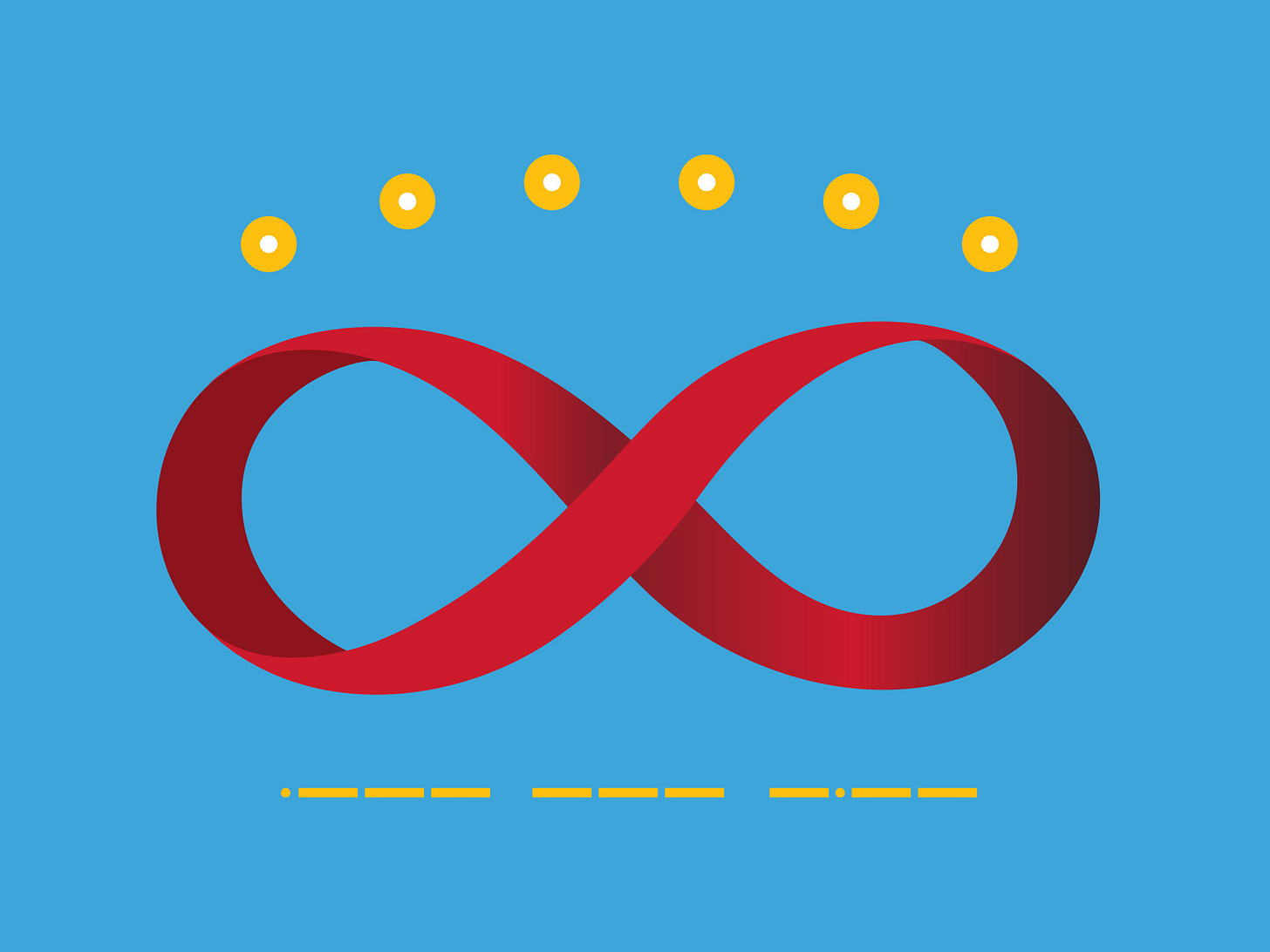More thoughts on determinism and free will
Being or becoming, determinism or nondeterminism, predestination or free will? Or are both valid descriptions of reality?
Greetings to all readers and subscribers, and special greetings to the paid subscribers!
Please scroll down for the main topic of this newsletter. But first take a look at the video of the Terasem Space Day Colloquium on July 20, 2022. Cultural, philosophical, and spiritual aspects of spaceflight and space expansion. Rick Tumlinson, Riccardo Campa, Elaine Walker, Frank White, Frank Tipler.
See also my commentary.
The next Terasem Colloquium will take place on December 14, 2022, the 50th anniversary of the last departure from the Moon. Yes, humans haven’t been on the Moon for 50 years. Let’s hope we’ll never celebrate the 60th anniversary, and stay tuned for news on the Terasem Colloquium on December 14!
And speaking of Terasem:
This is my interpretation of Terasem (new and updated version forthcoming).
Every month on the 10th I participate in a monthly Terasem gathering online (Zoom, 10am ET) with other “joiners.” I would love seeing you there! Feel free to write to me if you want to join Terasem and participate, and I’ll introduce you. Terasem is small but growing, with a great potential to do good.
George Dvorsky has written a Gizmodo piece titled “Whatever Happened to the Transhumanists? The once-vibrant transhumanist movement doesn’t capture as much attention as it used to, but as an idea it’s far from dead.”
I find George’s piece good enough but not great. Not great because it’s centered too much on the messy politics of the here and now. George says:
“Given the current landscape, it’s my own opinion that self-described transhumanists should advocate and agitate for full bodily, cognitive, and reproductive autonomy, while also championing the merits of scientific discourse. Until these rights are established, it seems a bit premature to laud the benefits of improved memories or radically extended lifespans, as sad as it is to have to admit that.”
To me, this sounds like suggesting that transhumanists should become like those former alcoholics that spend their unhappy days condemning alcohol and praising the virtues of milk and green tea. Not my thing. Also, I suspect that George refers to “the merits of scientific discourse” in a pro-establishment, politically correct sense.
This isn’t really my business, because I have stopped calling myself a “transhumanist.” Today I call myself a “cosmist” instead.
George gives more space to his ideological cohorts. But there are some gems in George’s piece. For example, “We need optimism!,” says Anders Sandberg. We need to think that the future “is going to be awesome enough to be worth saving, and that we have power to do something constructive.”
I agree. Thinking of awesome futures (more awesome than even the wildest dreams of transhumanists) is what makes me get out of bed in the morning and try to do something good. Otherwise, I would stay in bed.
In a next newsletter I’ll comment on other parts of George’s piece.
I have been reading and thinking more about the never ending questions of being or becoming, determinism or nondeterminism, predestination or free will.
This distracts me from working on the rest of my next book, but I think these are THE fundamental issues that will provide an operating system for whatever new science we will develop.
Determinism is the idea that everything that ever happens is set in stone, predetermined by initial conditions at the very beginning of the universe. Nondeterminism is the idea that the universe (or Mind at Large, or God) makes non-predetermined (free willed) choices as time goes by. Perhaps we have free will as well, in a more limited sense.
There are compatibilist arguments, such as those based on computational irreducibility, which suggest that even in a deterministic world we can formulate a concept of free will. But I find compatibilist concepts of free will too weak, since things are still predetermined even if unpredictable.
I lean toward nondeterminism and free will, but two forthcoming books by Sabine Hossenfelder (“Existential Physics: A Scientist's Guide to Life's Biggest Questions” and Tim Palmer (“The Primacy of Doubt: From Quantum Physics to Climate Change, How the Science of Uncertainty Can Help Us Understand Our Chaotic World”) could challenge my mind. See their joint paper “Rethinking Superdeterminism” (2020).
To me, superdeterminism is just determinism taken seriously: we are predetermined like everything else in the universe, free will is an illusion, and that’s it. Others see superdeterminism as a “conspiracy” (see the interesting discussion in the comments to this recent newsletter). But Gerard ’t Hooft has no objections against super-determinism: “‘conspiracy’ is an ill-defined concept, which only exists in the eyes of the beholder.” I tend to agree with ’t Hooft.
In “Fundamentals: Ten Keys to Reality” (2021), Frank Wilczek says:
“Do people have choice in what they do, or are they puppets who dance to the tune of mathematical physics? That is a bad question, not unlike asking whether music is harmony or melody… Free will and physical determinism are complementary aspects of reality.”
My interpretation of this passage is that determinism and free will are complementary like the two possible alternative interpretations of a Necker cube or this picture. Appropriate formulations of (super)determinism and nondeterminism can be - both - valid descriptions of physical reality, and somewhat equivalent to each other.

But how can determinism and free will be both valid perspectives? I’m trying to wrap my mind around this, and I find an entry point in recent works by Nicolas Gisin.


